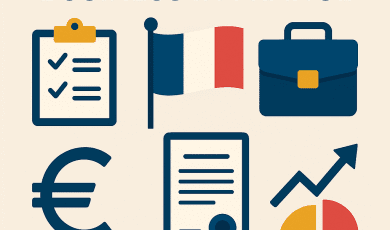
The political relationship between France and Germany is one of the most significant and influential relationships in modern European history. These two countries, which were once bitter enemies, have now become the closest allies and have worked together to build a strong and prosperous European Union.
The relationship between France and Germany has been shaped by historical events and shared values. The two countries fought each other in three major wars in the 19th and 20th centuries, but they have also collaborated in various ways throughout history. The turning point in their relationship came after World War II, when the two countries realized that they needed to work together to prevent another war in Europe.
One of the most important events in the Franco-German relationship was the signing of the Elysée Treaty in 1963. This treaty established a framework for cooperation between the two countries in various fields, including economics, education, and culture. It also created a joint Franco-German committee to promote cooperation in these areas.
The relationship between France and Germany has also been crucial in the development of the European Union. Both countries have been strong advocates for the EU's founding principles, such as free movement of people and goods, and the creation of a common currency, the euro. The partnership between France and Germany has been instrumental in the EU's success and has helped to strengthen the EU's position on the global stage.
Climate change is one of the most pressing global issues of our time. It refers to the long-term changes in the Earth's climate, including changes in temperature, precipitation, and sea level. These changes are largely caused by human activities, such as the burning of fossil fuels and deforestation, which have led to increased levels of greenhouse gases in the atmosphere.
The impacts of climate change are already being felt around the world. Rising temperatures are causing more frequent and severe heatwaves, droughts, and wildfires, while melting ice caps and glaciers are leading to sea level rise and coastal flooding. Climate change is also contributing to the loss of biodiversity and the spread of disease.
To address climate change, it is essential that we reduce our greenhouse gas emissions and transition to a low-carbon economy. This will require a shift away from fossil fuels towards renewable energy sources, such as wind and solar power. It will also require changes in land use practices, transportation, and industrial processes.
Governments, businesses, and individuals all have a role to play in addressing climate change. Governments can set policies and regulations to encourage the transition to a low-carbon economy, such as putting a price on carbon emissions or investing in renewable energy research and development. Businesses can reduce their emissions by improving energy efficiency, investing in renewable energy, and using sustainable materials. Individuals can make changes in their daily lives, such as using public transportation, eating a plant-based diet, and reducing waste.
In addition to mitigation, adaptation is also essential to address the impacts of climate change that are already happening. This includes measures such as building seawalls to protect against coastal flooding, improving water management systems, and developing drought-resistant crops.
However, the Franco-German relationship has not always been smooth. There have been disagreements between the two countries on various issues, such as the EU's enlargement and the handling of the eurozone crisis. These disagreements have been a source of tension, but they have also led to constructive dialogue and compromise between the two countries.
Today, France and Germany continue to work closely together on a range of issues, including climate change, security, and defense. Their relationship remains a cornerstone of the European Union, and their partnership is essential for the continued success and stability of the EU.
In conclusion, the political relationship between France and Germany is a complex and multifaceted one, shaped by historical events, shared values, and common interests. While there have been disagreements between the two countries, their partnership has been a driving force behind the success of the European Union. As we look to the future, it is clear that the continued cooperation between France and Germany will be essential for the prosperity and stability of Europe as a whole.








